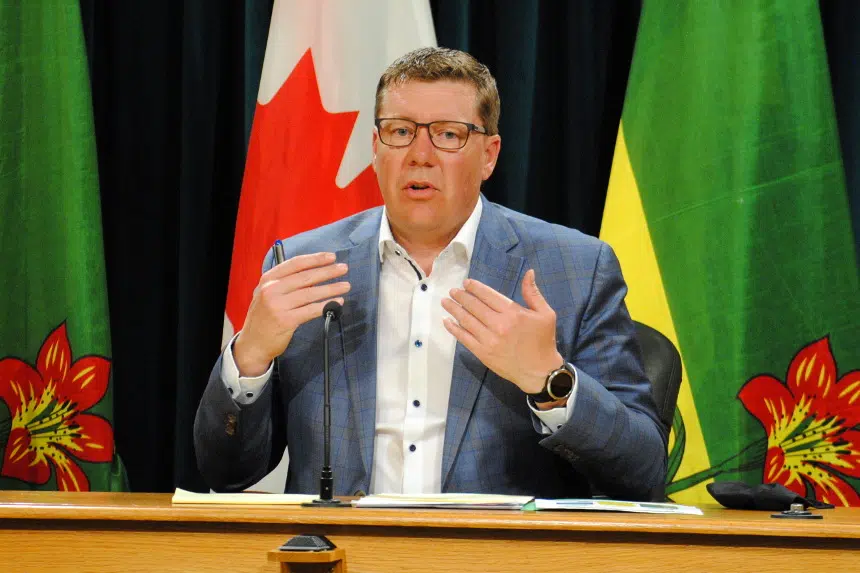Saskatchewan is taking a pass on vaccine passports.
During a media conference Tuesday, Premier Scott Moe said the province will not require people to show proof of COVID-19 vaccination before they attend large-scale events in Saskatchewan.
“Our government is strongly encouraging every eligible person to take the time to go out and get vaccinated, but it would be a potential violation of health information privacy if we were to ask anyone for proof of vaccination in order to attend an event,” Moe said.
“That said, as always, we want everyone to go out and get vaccinated.”
In a recent poll done at the University of Saskatchewan, the vast majority of respondents said they would like to see people have to produce proof of vaccination to get into large events.
When that survey was mentioned to Moe on Tuesday, he replied: “We don’t govern by polls. We govern by proper policy as well as what we can and can’t do with respect to privacy information.”
“When we get past July 11, we’re going to be in an area where the emergency order will not be in place,” Moe said, referring to the date when Step Three of the Re-Opening Roadmap takes effect and all public health measures are lifted.
“We most certainly don’t have the ability then to demand that people would show a proof of vaccination for whether or not they would attend any large event here in the province.”
Scott Livingstone, the CEO of the Saskatchewan Health Authority, said the Health Information Protection Act also would be a factor in the decision. A person’s vaccination history is part of their health information, which no one outside of the health-care field can request.
Moe noted proof of COVID vaccination may yet be required to travel internationally, just as it’s required now to show travellers have been vaccinated against some tropical diseases.
The province won’t be asking for anything similar.
“With respect to provincial vaccine passports or requirements to be vaccinated to attend certain events or to work in certain areas or anything of that nature, the Government of Saskatchewan is not moving that direction,” Moe said.
Direction of vaccinations
Moe rhymed off a number of statistics to validate Saskatchewan’s vaccination campaign.
In the past week, Moe said, more than 131,000 shots were administered in the province — or 13 per cent of all eligible residents.
Saskatchewan also became the first province in the country to get 40 per cent of its residents fully vaccinated.
At its current pace, the premier said, Saskatchewan could have close to 60 per cent of its residents fully vaccinated by July 11 and more than 70 per cent inoculated with two doses by the end of July.
The seven-day average of new COVID cases stood at 46 on Tuesday, down 84 per cent from its third-wave peak of 287 in mid-April.
For Moe, it’s all proof that the vaccines are working in Saskatchewan.
“For those that are pondering whether or not to get vaccinated, we are going to learn how to live with COVID,” he said.
“We are going to reopen our communities and our businesses and our society in general. We’re not going to wait for you to make that decision, but we would urge you to make it sooner rather than later because we do have vaccines that are available for you and we don’t want you to be choosing to live with an unnecessary risk that you may be considering.”
Dr. Saqib Shahab, the province’s chief medical health officer, said most of the new cases being reported in the province are in areas where vaccination rates are low, including the northwest, north-central and far north zones.
He added the majority of new cases and new hospitalizations in Saskatchewan are under the age of 50 – the age groups that have the lowest vaccination rates in the province.
To address that, the Saskatchewan Health Authority continues to operate drive-thru, walk-in and pop-up clinics around the province in hopes of getting more people vaccinated with both doses.
Livingstone noted while the number of first doses administered is slowing — it has been under 1,000 in each of the past two days — another 100,000 Saskatchewan residents would get their first shot by the end of August if the current pace continues.
“We’d like to see that uptake faster,” Livingstone said. “That’s why we’re trying to bring clinics out to as many sites as possible to make it as convenient as possible for people to get their vaccinations.”











